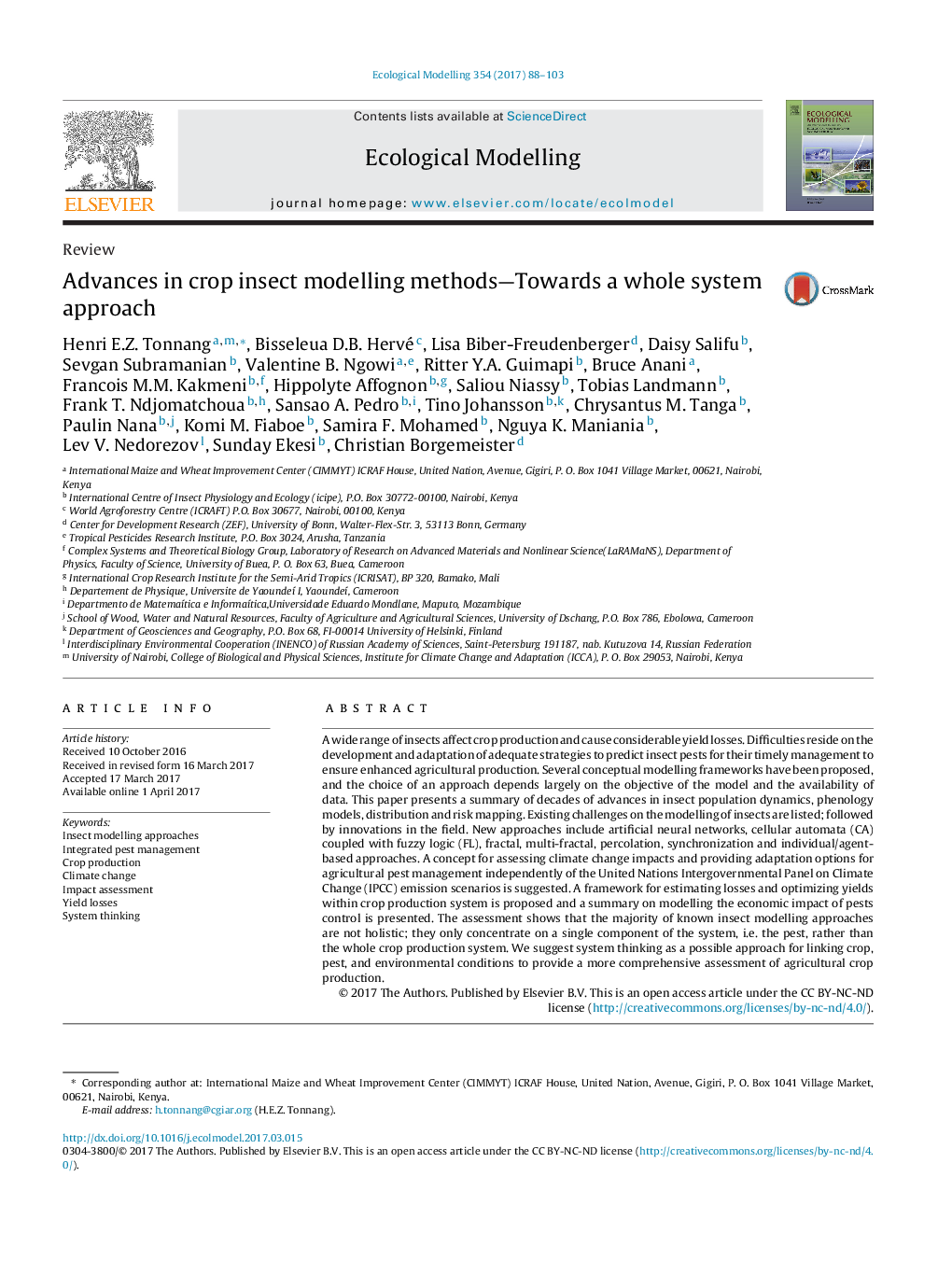| کد مقاله | کد نشریه | سال انتشار | مقاله انگلیسی | نسخه تمام متن |
|---|---|---|---|---|
| 5742189 | 1617393 | 2017 | 16 صفحه PDF | دانلود رایگان |
- How can pest population dynamics be predicted in the presence of multiple factors?
- How do biotic and abiotic factors affect the interactions between pests and their natural enemies?
- How can area-wide impacts of natural enemies on pest populations be measured and predicted?
- How can we best describe the spreading patterns of pests and assess the risk of invasion to other areas?
- Insect pests adapt to climatic change and survive in new environmental conditions and control pressures. Can we develop models to account for and predict these changes?
A wide range of insects affect crop production and cause considerable yield losses. Difficulties reside on the development and adaptation of adequate strategies to predict insect pests for their timely management to ensure enhanced agricultural production. Several conceptual modelling frameworks have been proposed, and the choice of an approach depends largely on the objective of the model and the availability of data. This paper presents a summary of decades of advances in insect population dynamics, phenology models, distribution and risk mapping. Existing challenges on the modelling of insects are listed; followed by innovations in the field. New approaches include artificial neural networks, cellular automata (CA) coupled with fuzzy logic (FL), fractal, multi-fractal, percolation, synchronization and individual/agent-based approaches. A concept for assessing climate change impacts and providing adaptation options for agricultural pest management independently of the United Nations Intergovernmental Panel on Climate Change (IPCC) emission scenarios is suggested. A framework for estimating losses and optimizing yields within crop production system is proposed and a summary on modelling the economic impact of pests control is presented. The assessment shows that the majority of known insect modelling approaches are not holistic; they only concentrate on a single component of the system, i.e. the pest, rather than the whole crop production system. We suggest system thinking as a possible approach for linking crop, pest, and environmental conditions to provide a more comprehensive assessment of agricultural crop production.
Journal: Ecological Modelling - Volume 354, 24 June 2017, Pages 88-103
